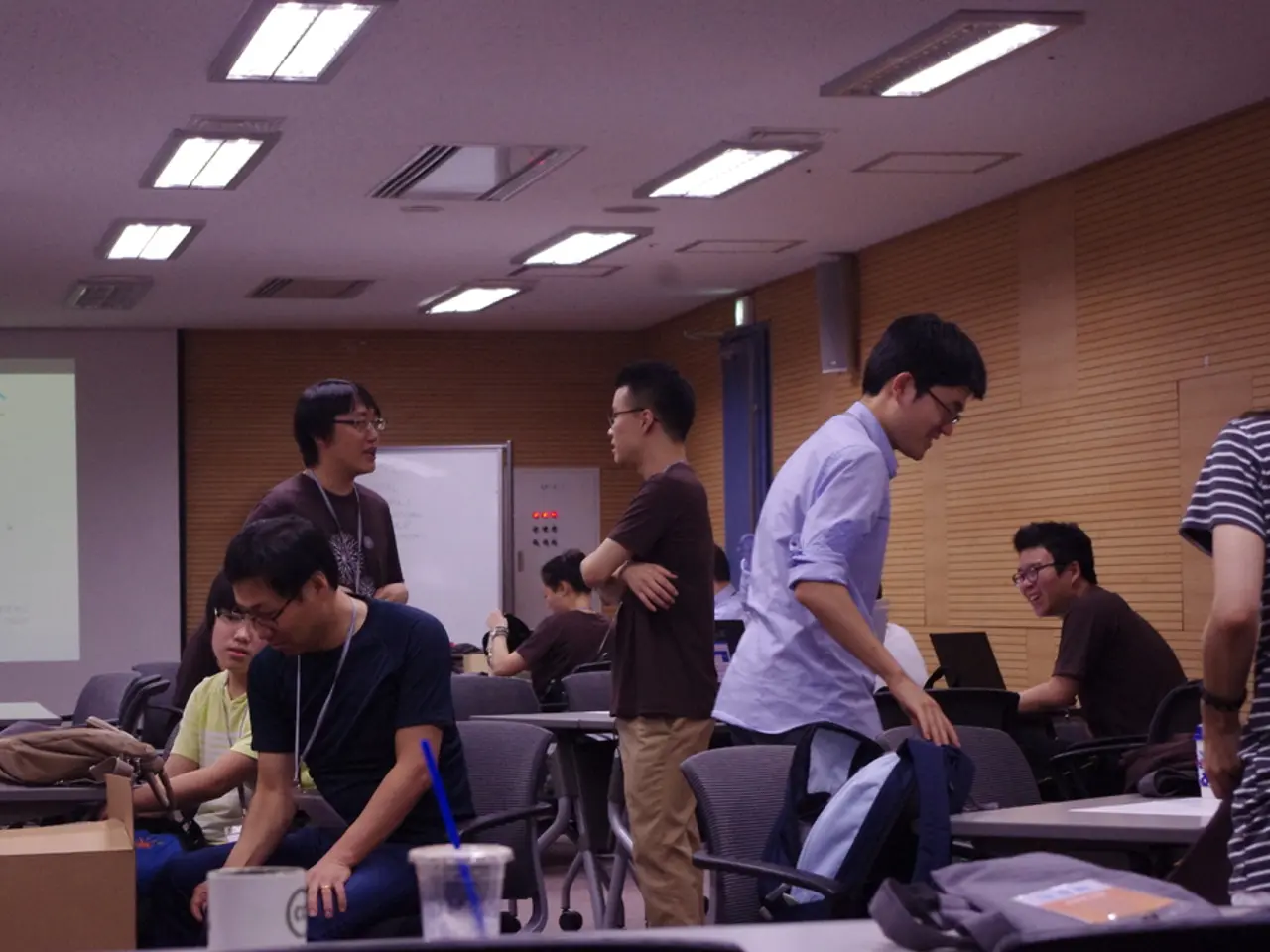Technology's Impact on Learning Spaces: Reinventing Education Through Digital Methods
In the modern educational landscape, technology plays a pivotal role in fostering creativity, independence, and global connections among learners. By integrating Artificial Intelligence (AI), immersive technologies, and collaborative digital tools, education is being revolutionized to empower students to pursue personalized, self-directed, and creative learning pathways.
One of the key ways technology achieves this is through personalized learning enabled by AI. Adaptive learning platforms, driven by AI, respond to individual student needs in real-time. These platforms analyse learning patterns, predict optimal content delivery, and adjust difficulty and pacing, allowing students to learn at their own pace and follow their unique learning paths [1][5].
Immersive and interactive technologies, such as augmented reality (AR) and virtual reality (VR), create engaging learning environments that support creative exploration of complex concepts. Tools like simulations and virtual field trips enable active learning experiences that go beyond passive information consumption [1][5].
Digital platforms also facilitate peer collaboration, knowledge sharing, and global connectivity. This connectivity enhances creativity through exposure to diverse perspectives and collaborative problem-solving [2]. For instance, an online study group, comprised of members from different states and backgrounds, was formed. This virtual space allowed members to break free from traditional cliques, contributing unique insights during discussions and tackling challenging subjects together while celebrating milestones, forging friendships [2].
AI-powered educational assistants, such as chatbots and virtual tutors, provide students with personalized support, immediate feedback, and scaffolding. This helps learners independently troubleshoot problems and deepen their understanding without constant teacher intervention [1][5].
The development of critical thinking and problem-solving skills is another benefit of technology-enhanced education. By shifting education towards active engagement and participation, students are encouraged to develop creativity, problem-solving, and self-directed learning skills essential for success in the digital age [2].
However, it's important to note that challenges in equitable access, educator adaptability, and strategic integration remain. To avoid potential barriers in technology adoption, careful planning and consideration are necessary [3].
Moreover, maintaining a balance between screen time and in-person interactions is crucial for well-rounded development. Gamification, transforming traditional learning experiences into interactive games, can help maintain engagement while limiting screen time [4].
The future of education is inclusive, dynamic, and hopeful, with young minds using technology to innovate. Virtual exchange programs, for example, allow students to collaborate with peers from different continents, fostering global connections and cultural understanding [6].
In conclusion, technology in education promotes creativity and independence among learners, nurtures relationships that transcend geographical boundaries, and provides diverse resources catering to students from various backgrounds and learning styles. By embracing technology, education is becoming more accessible, dynamic, and hopeful for the future.
[1] https://www.edutopia.org/blog/personalized-learning-ai-future-classroom [2] https://www.edutopia.org/blog/technology-empowering-students [3] https://www.edutopia.org/blog/challenges-integrating-technology-classroom [4] https://www.edutopia.org/blog/gamification-classroom [5] https://www.edutopia.org/blog/technology-transforming-learning [6] https://www.edutopia.org/blog/virtual-exchange-programs-global-connections
- The integration of Artificial Intelligence (AI) in education empowers the development of personalized learning systems, which adapt to individual student needs in real-time.
- Immersive technologies like augmented reality (AR) and virtual reality (VR) create engaging learning environments, facilitating creative exploration of complex concepts.
- Digital platforms in education promote peer collaboration, knowledge sharing, and global connectivity, enhancing creativity by exposing students to diverse perspectives and collaborative problem-solving.
- AI-powered educational assistants, such as chatbots and virtual tutors, offer personalized support, immediate feedback, and scaffolding, fostering self-directed learning and independence in students.
- The use of technology in education not only promotes creativity but also develops critical thinking and problem-solving skills essential for success in the digital age.
- Although challenges in equitable access, educator adaptability, and strategic integration exist, the future of education is inclusive, dynamic, and hopeful, with technology driving innovation and fostering global connections.




